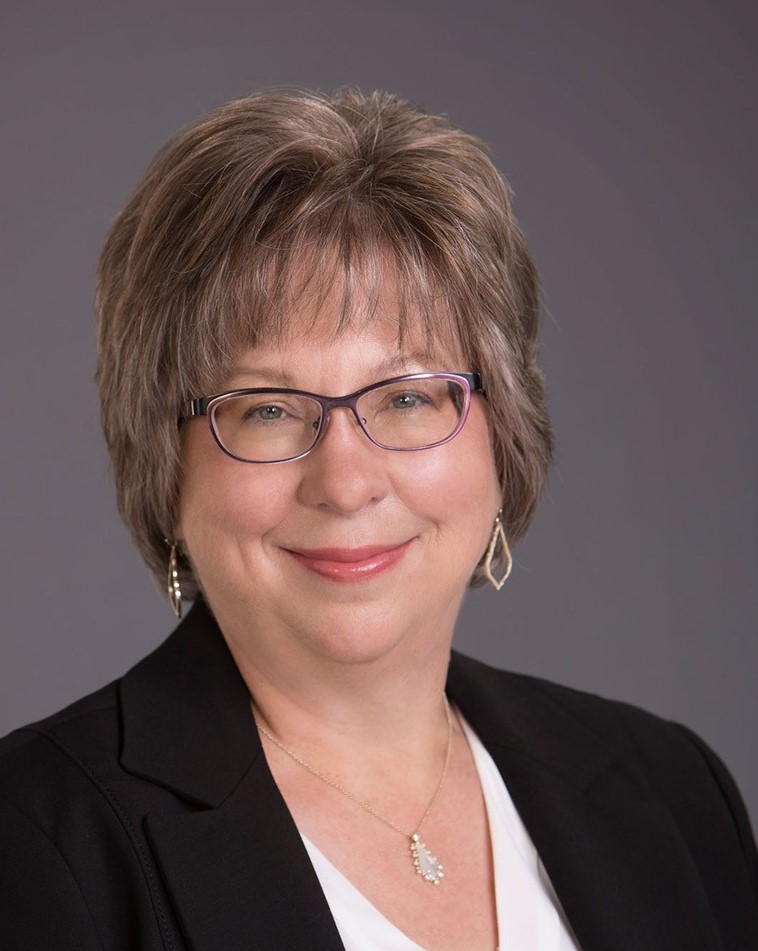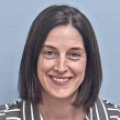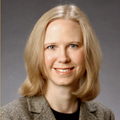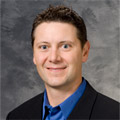
Telehealth for the Interprofessional Team: Optimizing Visits from Start to Finish
The benefits of telehealth are clear: when high-quality care is safe and convenient, people are more likely to seek it. In the wake of the COVID-19 pandemic, providers are experiencing exponential growth in patient desire for telehealth options. This course outlines the standards and best practices to use as a roadmap for designing a top-notch telehealth practice.
ELEMENTS OF COMPETENCE
This activity changes learner competence and focuses on these elements:
- American Board of Medical Specialties: Patient care and procedural skills and interpersonal communication skills
- National Academy of Medicine: Providing patient-centered care
- Center for the Advancement of Pharmacy Education: Communication and patient-centered care
- Interprofessional Education Collaborative and Nursing: Roles/responsibilities and teams and teamwork
Intended Audience
We designed this course for advance practice nurses, nurses, pharmacists, physicians, physician assistants, social workers, and others who use telehealth within their clinical practice.
Global Learning Objectives
By the end of the course, professionals as members of the healthcare team will be able to:
- Discuss best practices for preparing health care professionals and patients/families for effective and efficient telehealth visits.
- Identify roles and responsibilities of the health care team to provide optimal health care in a telehealth environment.
- Compare and contrast the differences between delivering telehealth and in-person care, identifying best practices for conducting assessments in a virtual environment.
- Describe the experience of an optimal virtual visit presence from the patient, family, and provider perspective.
- Identify challenges and opportunities for addressing patient needs across the lifespan and disparities during a telehealth visit.
- Assess and reflect upon how assumptions, stereotypes and biases affect decision-making during a telehealth visit and strategies to overcome them.
AGENDA
Thursday, September 30, 2021
7:45 AM - 4:00 PM (All times are in CST)
| Time | Session | Learning Objectives | |
| 7:45-8:00 AM | Welcome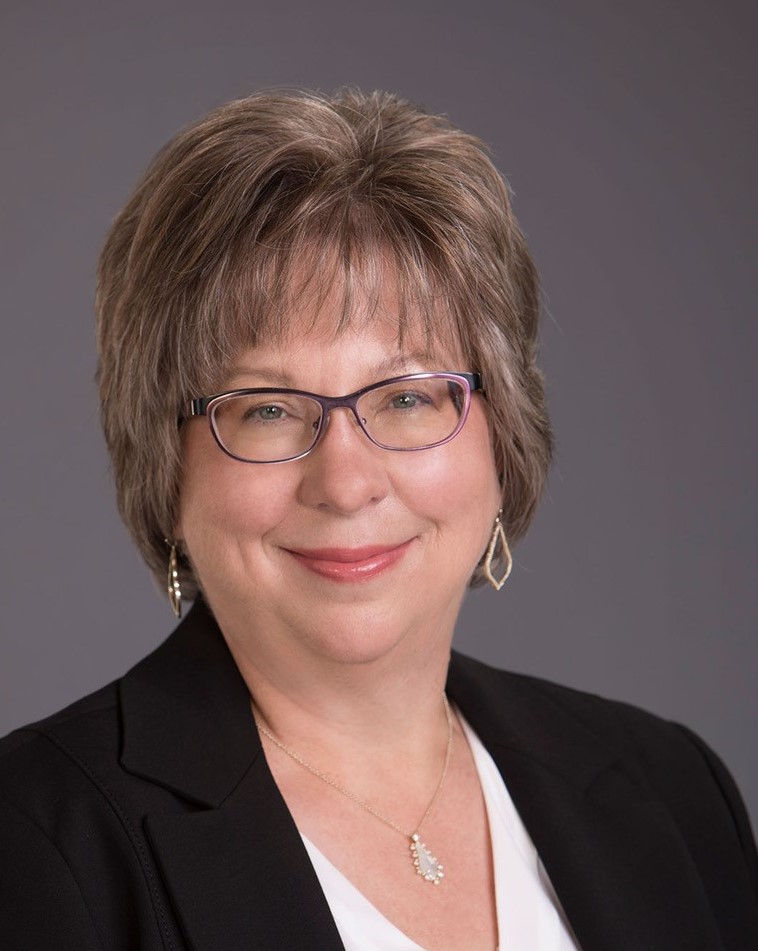 ~ Sue Gaard, MS, RN No continuing education credit is available for the Welcome session. | ||
Preparing for a Telehealth VisitPrior to a telehealth visit, both patient and provider benefit from deliberate and thoughtful preparation. Addressing technology and roles and responsibilities distinct to the telehealth environment are critical to providing high-quality care. Presenters | |||
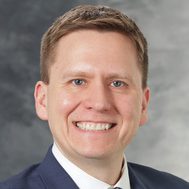 ~ Christopher Manakas, MD | 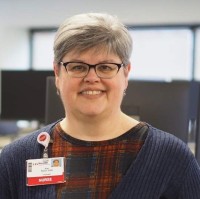 ~ Kim Riese, BSN, MSHI | ||
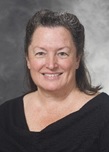 ~ Rebecca Rankin, BSN, MS, RN, CPHQ, PMP (Facilitator) | |||
| 8:00-9:00 AM | Telehealth Considerations: Patient, Clinician, and Geographic |
| |
| 9:00-9:10 AM | BREAK | ||
| Designing for Success (20 minutes)  ~ Kim Riese, BSN, MSHI | |||
| Technology Troubleshooting (20 minutes)  ~ Kim Riese, BSN, MSHI | |||
| Small Group Discussion: Learning from Each Other (15 minutes)  ~ Rebecca Rankin, BSN, MS, RN, CPHQ, PMP (Facilitator) | |||
Your Telehealth PresenceGiving voice to the patient experience is the foundation of person-centered care. This session features interviews with several UW Health telehealth patients. They respond to specific and detailed questions about their experience, from pre-visit, to visit to post-visit instructions. Our panelists identify the significance of these findings and discuss strategies for cultivating a positive and effective patient experience. Panelists | |||
 Shelby Gomez, PharmD |  Kristen Panther, NP | ||
 Megan Neuman, MD |  Mariah Quinn, MD, MPH | ||
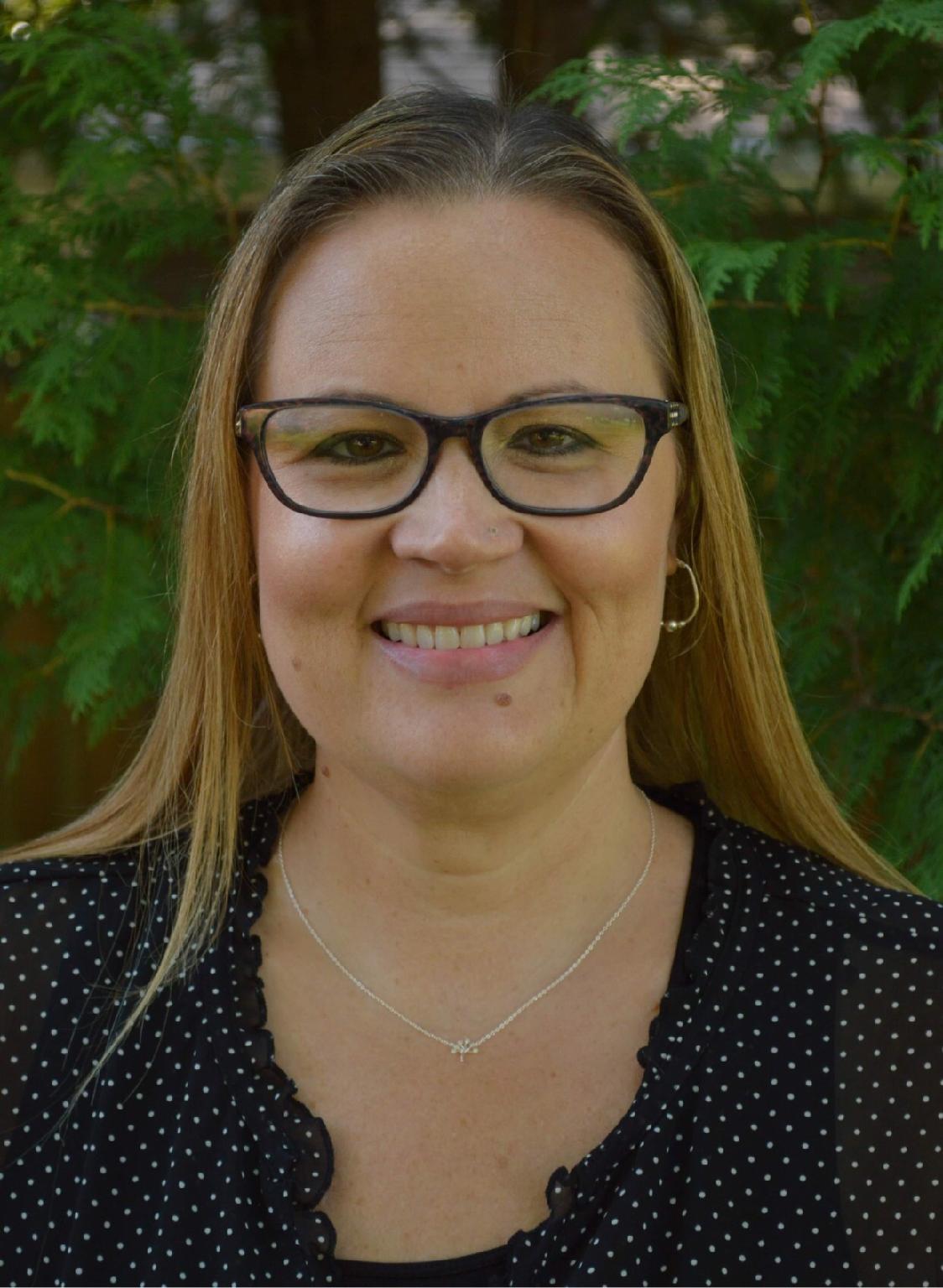 Holly Pagel, MSW |  Joanna Ruchala, MD | ||
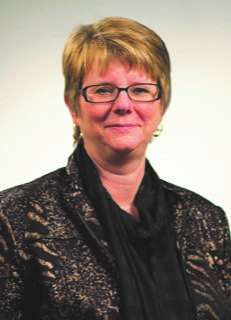 Linda Sparks, MBA (Facilitator) | 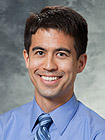 Jonathan Takahashi, MD, MPH | ||
| 10:15-11:15 AM | Patient Perspectives and the Provider Panel (60 minutes) |
| |
| 11:15-11:30 AM | BREAK | ||
| 11:30 AM-12:30 PM | Patient Dialogue and Panel Discussion
| ||
Wisdom from the FieldOur panel of clinicians share their experience practicing via telehealth. They discuss the implications of using technology, and offer guidance on skills and standards necessary to meet the demand for care delivered via telehealth now and in the future. Panelists | |||
 Ann Lanham, MSN |  David Schneider, MD, MS, FACS | ||
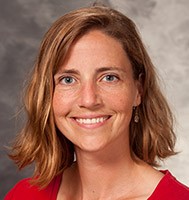 Megan Neuman, MD |
| ||
 Amy Schmitz (Facilitator) | |||
| 1:00-2:15 PM | Using Telehealth: Patient and Practice Readiness (30 minutes) |
| |
| Remote Clinical Evaluation and Care (45 minutes) |
| ||
| 2:15-2:30 PM | BREAK | ||
| 2:30-3:45 PM | Communication Using Telehealth (20 minutes) |
| |
| Patient Safety (20 minutes) |
| ||
| Access and Equity (20 minutes) |
| ||
| Summary and Q&A (15 minutes) | Identify areas to improve upon telehealth visits in your practice. | ||
| 3:45-4:00 PM | Symposium Key Takeaways
| Describe 3 takeaways from this symposium that you can apply to your practice and/or share with your health care team. | |
PROGRAM CHANGES
Emergency situations occasionally occur and may necessitate topic or speaker changes. The University of Wisconsin–Madison ICEP reserves the right to alter or substitute a topic or speaker without prior notification.
Patient Perspectives
Kaylene, UW Health Patient
Emily, UW Health Patient
Suyapa, UW Health Patient
Brent, UW Health Patient
Laura, UW Health Patient
MODERATORS, PANELISTS & SPEAKERS
| Ms. Gaard serves as the Continuing Education Program Director for the University of Wisconsin– Madison School of Nursing, advancing strategic partnerships and initiatives to improve the health of communities. Her experience spans health care delivery, quality improvement, population health, community based research and and consumer engagement. As a member of the Interprofessional Continuing Education Partnership leadership team, she oversees the provision of accredited continuing education for the health professions and promotes team-based, collaborative practice on a national level. |
| Shelby Gomez, PharmD, BCPS, received her Bachelor of Pharmaceutical Sciences degree in 2015 from the University of Wisconsin - Madison and her Doctor of Pharmacy degree from the University of Wisconsin School of Pharmacy in 2017. She completed a PGY1 pharmacy practice residency and PGY-2 ambulatory care residency at the University of North Carolina Medical Center in 2018 and 2019, respectively. She is a Board Certified Pharmacotherapy Specialist. She currently practices as a specialty pharmacist at the UW Health Specialty Pharmacy and as an ambulatory care clinical pharmacist in the UW Lupus Nephritis clinic. As a clinical pharmacist at UW Health, her daily clinical activities include counseling patients on new start specialty medications, providing device teaching using telehealth technology, completing quarterly review and assessment of safety, efficacy, and adherence to specialty therapies, in addition to in-clinic medication management for lupus nephritis patients. She is also currently involved in lupus research focusing on addressing medication adherence barriers and better equipping providers to start adherence conversations with patients. Her pharmacy interests include networking, leadership development, and advancing ambulatory care practice. |
| Ann Lanham, MSN, RN the Nursing Patient Education Manager with the University of Wisconsin Hospitals and Clinics Authority. |
 Christopher Manakas, MD | Christopher Manakas, MD is certified by the American Board of Urology and focuses on delivering quality general urology care. His practice is broad, managing a wide variety of adult conditions. He has a demonstrated history of working in the hospital & health care industry and takes a value-driven, patient-centered approach to medical and surgical management of urologic conditions. |
 Megan Neuman, MD | Megan Neuman, MD is with UW Health Pediatrics and Adolescent Medicine. She is a Wisconsin native earning her medical degree at the University of Wisconsin School of Medicine and Public Health, Madison, WI. After completing her residency at Oregon Health and Sciences University, Portland, OR she worked as a pediatrician at Legacy Health in Portland in primary care as well as in the newborn nursery. Prior to coming to Madison, she was working in Sturgeon Bay, WI. Dr. Neuman is also a certified lactation consultant with a particular interest in the care of newborns and infants. Children and adolescents of all ages present different kinds of joys and challenges, and she is happy to see them all! In her free time, she enjoys outdoor activities of all kinds, including rowing, biking, running, and hiking. |
| Holly Pagel, MSW, LCSW-SA, ICS, graduated from UW-Madison, School of Social Work, with her MSW in 2006. Prior to receiving her MSW, Holly worked for the Department of Corrections for six years. She has been employed at Jefferson County Human Services since 2006 where she worked for five years in the Comprehensive Community Services program as a Service Facilitator and Psychotherapist, working with children and adults diagnosed with a severe and persistent mental illness. For the past 10 years she has been the Clinic Manager of the Outpatient Mental Health and AODA Clinic at Jefferson County Human Services. Holly is currently the Intoxicated Driver Program Coordinator for Jefferson County. She has been an Instructor in the social work field for the past 10 years and a Field Instructor with UW-Madison, Sandra Rosenbaum School of Social Work since 2013. Holly was a foster parent for seven years. Holly’s areas of interest include the treatment of co-occurring mental health and substance use disorders, substance use prevention and she has a strong passion for racial justice and equity. Holly is a Motivational Interviewing coach and trainer and intensively trained in Dialectical Behavioral Therapy (DBT), including DBT-C. |
| Kristen Panther, NP is licensed as an Advanced Practice Nurse Prescriber and board-certified in adult health by the American Nurses Credentialing Center. In her clinical work, Kristen focuses on health promotion of well adults and chronic disease management, with specific interest in women's health (including contraception), diabetes, hypertension, nutrition and lifestyle management of obesity. She is also the Program Manager of Professional Development and Education for UW Health’s Advanced Practice Providers. Kristen has co-created and co-taught an interdisciplinary course on preceptor development for interdisciplinary medical educators. She developed a recurring hands-on skills session to support APP’s in practicing at their full scope of practice. She is a past awardee of the General Internal Medicine Clinical Teaching Award as well as the UW Health Patient Experience Award. |
| Barbara Pinekenstein DNP, RN-BC, CPHIMS, FAAN is the Interim Associate Dean for Academic Affairs and a Clinical Professor in the Richard E. Sinaiko Professor in Health Care Leadership at the University of Wisconsin- Madison, School of Nursing. Dr. Pinekenstein brings extensive senior healthcare leadership experience as a chief nursing officer and vice president of clinical informatics. Barb is a Fellow in the American Academy of Nursing and holds two national certifications in informatics. She serves on the Academy's expert panel for Informatics and Technology. Barb’s areas of expertise include healthcare system leadership, workforce, innovation, healthcare policy and informatics. |
 Mariah Quinn, MD, MPH | Mariah Quinn, MD is a faculty member in the Division of General Internal Medicine in the Department of Medicine. She serves as Director of the Empathy Course and is the Chief Wellness Officer for UW Health. Her areas of expertise include physician well-being, medical education and humanism in medicine. Previously, she served as Physician Chief of the Complex Chronic care Program at Harvard Vanguard Medical Associates and a Clinical Instructor at Harvard Medical School. She is a member of the Association of Program Directors of Internal Medicine, the Society of General Internal Medicine, and the American College of Physicians. Honors and awards presented to Dr. Quinn include induction into the Alpha Omega Alpha medical honorary society, the Paul Sherlock Prize in Internal Medicine for Integrity and Compassion in the care of patients at Cornell University, the Joan Severino Parisi Faculty Prize in Internal Medicine for scholastic achievement in Internal Medicine at Cornell University, the Tufts University Medical School Teaching Award, the Physician’s Physician Award awarded by the Department of Medicine Internal Medicine Residents Class of 2015, the Graham-Meyer Teaching Award for excellence in ambulatory teaching, and induction into Fellowship in the American College of Physicians. Dr. Quinn has co-created and co-taught a course on empathy for Internal Medicine residents that relies upon evidence review and review of humanities-informed techniques including improvisational theater, art observation, and stress modulation and self-care skills including meditation, mindfulness, and breath/movement awareness. She has also served as a coach for WeTalk (a simulation-based training workshop for providers that focuses on development of empathic communication skills) and as leader and co-developer of an elective course for third-year residents that uses observation and reflection on art and guided relaxation exercises to consider the transition from residency to fellowship or faculty roles. Additional past courses taught or led by Dr. Quinn include Communication and Humanistic Medicine, Caring for Dying Patients and Self-Care, Advanced Medical Interviewing, and Mental Health and Wellness. She serves as a preceptor for UW School of Medicine and Public Health medical students in continuity clinics and in the Patient, Doctor and Society course. |
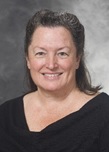 Rebecca Rankin, BSN, MS, RN, CPHQ, PMP | Rebecca Rankin, BSN, MS, RN, CPHQ, PMP is the Director of Nursing Informatics at UW Health. |
| Kim Riese, BSN, RN, MSHI is an RN Coordinator with the Telehealth Team at UW Health. After earning her Nursing degree at the University of Wisconsin-Eau Claire in 1983, Kim delivered direct patient care for many years in a variety of health care settings spanning the continuum of care. In 2008, Kim changed career paths to begin educating providers and staff in the use of electronic medical records and in 2012 earned a Masters Degree in Health Informatics. At UW Health, Kim has provided support in the clinics for providers and staff in their use of the electronic record and in 2018 stepped into her role with the Telehealth Team providing education, operational guidance, and support in the use of Telemedicine. |
| Joanna Ruchala, MD earned her medical degree from the University of Wisconsin School of Medicine and Public Health (formerly UW Medical School), Madison, WI and completed her residency at the University of Wisconsin Hospital and Clinics. Her special interests include preventive medicine. She is a faculty member in the Division of General Internal Medicine within the Department of Medicine. Dr. Ruchala is active in medical student teaching, and is a member of the American College of Physicians. |
| Amy Schmitz is the Telehealth Manager with the with the University of Wisconsin Hospitals and Clinics Authority. |
| Dr. Schneider received his medical degree and held a Research Fellowship in Burn & Shock Trauma Loyola Stritch School of Medicine in Chicago. He received a master of Clinical Research Methods from the Department of Preventive Medicine & Epidemiology, Loyola Stritch School of Medicine. Dr. Schneider has also held a Fellowship in Endocrine Surgery with the University of Wisconsin School of Medicine and Public Health. He is an Assistant Professor with the Division of Endocrine Surgery with the University of Wisconsin School of Medicine and Public Health and is a member of UW Health’s Physician Informatics Team and co-leader of the Clinical Informatics Community of Practice. Dr. Schneider holds dual board certification in Surgery and Clinical Informatics, and is a member of multiple specialty societies including the American Association of Endocrine Surgeons, the American Thyroid Association, the American Medical Informatics Association. He specializes in Endocrine Surgery, treating diseases of the thyroid, parathyroid, and adrenal glands. He utilizes several state of the art techniques to treat endocrine disorders (radioguided parathyroidectomy, minimally invasive parathyroidectomy, laparoscopic adrenalectomy, retroperitoneal adrenalectomy, minimally invasive thyroidectomy, four-gland parathyroid exploration, and treatment of recurrent or persistent hyperparathyroidism). |
| Marc Sherry, PT, DPT, LAT, CSCS, PES serves as the Rehabilitation Manager with the University of Wisconsin Hospitals and Clinics Authority. |
   Linda Sparks, MBA | Linda Sparks, MBA is the Director of Patient & Family experience at UW Health. She joined UW Health in 2017 and has more than 30 years of experience in advancing patient experience. She provides leadership in accelerating healthcare’s improvement of patient and family experience with emphasis on multidisciplinary team collaboration and the use of lean process improvement methodology. |
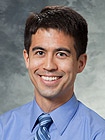 Jonathan Takahashi, MD, MPH Jonathan Takahashi, MD, MPH | Jonathan Takahashi, MD, MPH completed a bachelor’s degree in Chemistry from Carleton College in Minnesota. He spent a year on the island of Kaben in the Marshall Islands, teaching grades 3-8 in a bilingual environment. In addition to the challenges of under-resourced education, he was able to see first-hand the consequences of severely limited health care. This experience ultimately inspired him become a doctor and work with communities to improve health and prevent disease. He returned to the states and earned both his medical degree and Masters in Public Health from Harvard. As part of his MPH, he conducted a program evaluation of the Mind-Body Program for Successful Aging, a group health promotion program for seniors in the Boston area. Jonathan’s personal practice of yoga and meditation has motivated his interest in integrating techniques from these traditions with western medicine to better support health and prevent disease, and to help patients manage chronic illness. He sees potential for mind-body medicine to improve not only individual well-being, but also the well-being of groups and communities. He finished his residency in Family Medicine at UW-Madison in 2015 and is currently an Academic Integrative Medicine Fellow. Outside of work, Jonathan enjoys music, playing piano, singing, cooking, being outdoors, exercising, and spending time with family. |
PLANNING COMMITTEE
Sue Gaard, MS, RN* | Katherine Hartkopf, PharmD UW Health | Kristen Panther, ANP, RN UW Health |
Michele Glynn, DNP* | Lindsey Kregel, PA UW Health | Kim Riese, MSHI UW Health |
Barbara Pinekenstein, DNP, RN-BC, FAAN* | Ann Lanham, MSN, RN UW Health | Marc Sherry, DPT UW Health |
Brooke Ramsey, MSN* | Leanne Marso, DNP, RN UW Health | Linda Sparks, MBA UW Health |
Rebecca Rankin, MS, RN* | Megan Neuman, MD UW Health | David Schneider, MD UW Health |
Thomas Brazelton, MD | Holly Pagel, MSW University of Wisconsin–Madison |
POLICY ON DISCLOSURE
It is the policy of the University of Wisconsin–Madison Interprofessional Continuing Education Partnership (ICEP) to identify, mitigate and disclose all relevant financial relationships with ineligible companies* held by the speakers/presenters, authors, planners, and other persons who may influence content of this accredited continuing education (CE). In addition, speakers, presenters and authors must disclose any planned discussion of unlabeled/unapproved uses of drugs or devices during their presentation.
For this accredited continuing education activity, all relevant financial relationships have been mitigated and we list detailed disclosures below.
*Ineligible companies are those whose primary business is producing, marketing, selling, re-selling, or distributing healthcare products used by or on, patients. The ACCME does not consider providers of clinical services directly to patients to be ineligible companies.
The University of Wisconsin provides equal opportunities in employment and programming, including Title IX requirements. The University of Wisconsin fully complies with the legal requirements of the ADA and the rules and regulations thereof. If any participant in this educational activity is in need of accommodations, please contact [email protected]
Name | Role | Financial Relationship Disclosures | Discussion of Unlabeled/Unapproved uses of drugs/devices in presentation? |
Nina Berge, BA | UW-Madison NPD Staff | No relevant relationships with ineligible companies to disclose | No |
Thomas Brazelton, MD | Planner | No relevant relationships with ineligible companies to disclose | No |
Emily Comstock | Speaker/Author | No relevant relationships with ineligible companies to disclose | No |
Sue Gaard, MS, RN | Co-Course Director, Planner, Speaker/Author | No relevant relationships with ineligible companies to disclose | No |
Michele Glynn, DNP | Co-Course Director, Planner | No relevant relationships with ineligible companies to disclose | No |
Shelby Gomez, PharmD | Planner, Speaker/Author | No relevant relationships with ineligible companies to disclose | No |
Katherine Hartkopf, PharmD | Planner | No relevant relationships with ineligible companies to disclose | No |
Lindsey Kregel, PA | Planner | No relevant relationships with ineligible companies to disclose | No |
Ann Lanham, MSN | Planner, Speaker/Author | No relevant relationships with ineligible companies to disclose | No |
Grace Leonard, EdM | UW-Madison NPD Staff | No relevant relationships with ineligible companies to disclose | No |
Christopher Manakas, MD | Speaker/Author | No relevant relationships with ineligible companies to disclose | No |
Leanne Marso, DNP | Planner | No relevant relationships with ineligible companies to disclose | No |
Suyapa Meza | Speaker/Author | No relevant relationships with ineligible companies to disclose | No |
Tracy Mrochek, MPA, RN | UW-Madison NPD Staff | No relevant relationships with ineligible companies to disclose | No |
Megan Neuman, MD | Planner, Speaker/Author | No relevant relationships with ineligible companies to disclose | No |
Holly Pagel, MSW | Planner, Speaker/Author | No relevant relationships with ineligible companies to disclose | No |
Kristen Panther, ANP | Planner, Speaker/Author | No relevant relationships with ineligible companies to disclose | No |
Barb Pinekenstein, DNP | Co-Course Director, Planner, Speaker/Author | No relevant relationships with ineligible companies to disclose | No |
Mariah Quinn, MD | Speaker/Author | No relevant relationships with ineligible companies to disclose | No |
Brooke Ramsey, MSN | Co-Course Director, Planner | No relevant relationships with ineligible companies to disclose | No |
Rebecca Rankin, MS | Co-Course Director, Planner, Speaker/Author | No relevant relationships with ineligible companies to disclose | No |
Kim Riese, BSN, MSHI | Planner, Speaker/Author | No relevant relationships with ineligible companies to disclose | No |
Joanna Ruchala, MD | Speaker/Author | No relevant relationships with ineligible companies to disclose | No |
Peggy Rynearson, BA | UW-Madison NPD Staff | No relevant relationships with ineligible companies to disclose | No |
Brent Schmaling | Speaker/Author | No relevant relationships with ineligible companies to disclose | No |
Amy Schmitz | Speaker/Author | No relevant relationships with ineligible companies to disclose | No |
David Schneider, MD | Planner, Speaker/Author | No relevant relationships with ineligible companies to disclose | No |
Marc Sherry, DPT | Planner, Speaker/Author | No relevant relationships with ineligible companies to disclose | No |
Linda Sparks, MBA | Planner, Speaker/Author | No relevant relationships with ineligible companies to disclose | No |
Laura Stoller | Speaker/Author | No relevant relationships with ineligible companies to disclose | No |
Jonathan Takahashi, MD, MPH | Speaker/Author | No relevant relationships with ineligible companies to disclose | No |
Accreditation Statement
 | In support of improving patient care, the University of Wisconsin–Madison ICEP is jointly accredited by the Accreditation Council for Continuing Medical Education (ACCME), the Accreditation Council for Pharmacy Education (ACPE), and the American Nurses Credentialing Center (ANCC), to provide continuing education for the healthcare team. |
Credit Designation Statements
American Medical Association (AMA)
The University of Wisconsin–Madison ICEP designates this live activity for a maximum of 6.75 AMA PRA Category 1 Credit™. Physicians should claim only the credit commensurate with the extent of their participation in the activity.
AAPA Credit Designation Statement
| The University of Wisconsin–Madison ICEP has been authorized by the American Academy of PAs (AAPA) to award AAPA Category 1 CME credit for activities planned in accordance with AAPA CME Criteria. This live activity is designated for 6.75 AAPA Category 1 CME credits. PAs should only claim credit commensurate with the extent of their participation |
American Nurses Credentialing Center (ANCC)
The University of Wisconsin–Madison ICEP designates this live activity for a maximum of 6.75 ANCC contact hours.
Accreditation Council for Pharmacy Education (ACPE)
The University of Wisconsin–Madison ICEP designates this live activity for a maximum of 6.75 hour of knowledge-based CPE credit. Credit can be earned by successfully completing the activity, the assessment and the evaluation. Credit will be provided to NABP CPE Monitor within 60 days after the activity completion.
Universal Activity Number (UAN): JA0000358-0000-21-126-L04-P
ASWB Approved Continuing Education (ACE) – Social Work Credit
As a Jointly Accredited Organization, the University of Wisconsin – Madison ICEP is approved to offer social work continuing education by the Association of Social Work Boards (ASWB) Approved Continuing Education (ACE) program. Organizations, not individual courses, are approved under this program. State and provincial regulatory boards have the final authority to determine whether an individual course may be accepted for continuing education credit. University of Wisconsin–Madison ICEP maintains responsibility for this course. Social workers completing this course receive 6.75 live continuing education credits.
Continuing Education Units (CEUs)
The University of Wisconsin–Madison, as a member of the University Continuing Education Association (UCEA), authorizes this live activity for 0.675 continuing education units (CEUs) or 6.75 hours.
Available Credit
- 6.75 AAPA Category 1 CME
- 6.75 ACPE Contact Hours - Pharmacist
- 6.75 AMA PRA Category 1 Credit™
- 6.75 ANCC Contact Hours
- 6.75 University of Wisconsin–Madison Continuing Education Hours
- 6.75 Approved for AMA PRA Category 1 Credit™
Cost is FREE for UW/UW Health and affiliates; log in to see UW pricing. If you are logged in and affiliated with UW/UW Health and you do not see the adjusted pricing, please contact [email protected]
QUESTIONS?
REGISTRATION
[email protected] or call 608-262-7226
CONFERENCE INFORMATION
Sue Gaard, MS, RN
University of Wisconsin–Madison, School of Nursing
Required Hardware/software
Free, current version of Chrome, Firefox, Safari, or Microsoft Edge with audio and video capabilities. Some older browsers and Internet Explorer could produce error messages or not display the content correctly.

 Facebook
Facebook X
X LinkedIn
LinkedIn Forward
Forward



 Barbara Pinekenstein DNP, RN-BC, CPHIMS, FAAN
Barbara Pinekenstein DNP, RN-BC, CPHIMS, FAAN